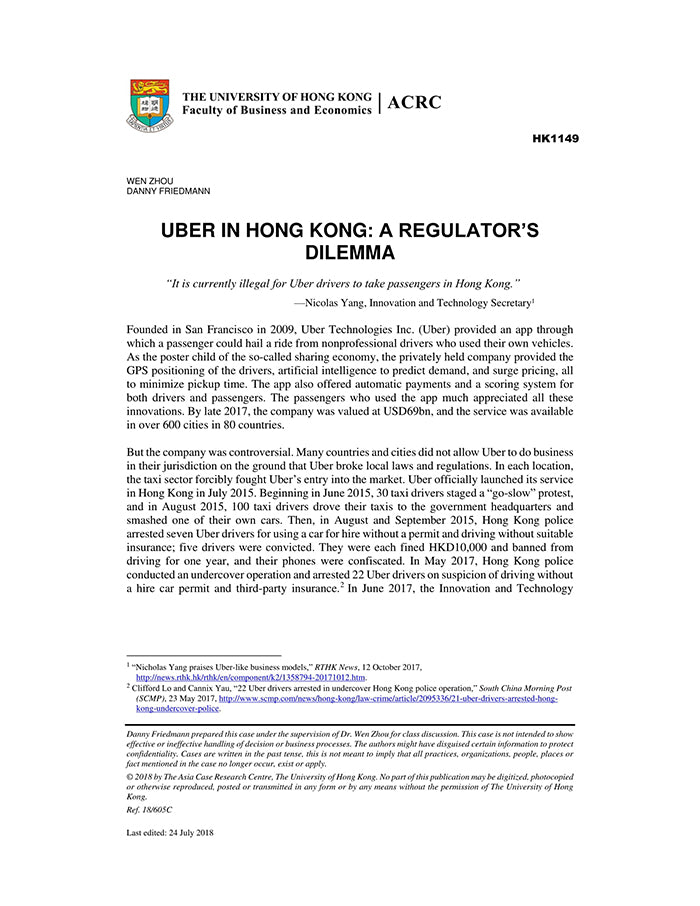Uber in Hong Kong: A Regulator's Dilemma
受取状況を読み込めませんでした
In Hong Kong as elsewhere in the world, Uber operates in a grey area. Thousands of passengers are using Uber service in the crowded city on a regular basis; many drivers make money through Uber by providing quality service and idle vehicles. On the other hand, taxi drivers have voiced strong oppositions to Uber on the ground of unfair competition and unlawful businesses, and staged several protests that were widely reported. Officially, Uber service is illegal in Hong Kong, as the government clarified explicitly that Uber drivers broke the law by offering car hiring services without any license or third-party insurance. The public is often puzzled: Uber seems such a nice thing that benefits both passengers and drivers, especially because the traditional taxies have such a poor quality and are often unavailable during peak hours. Why shouldn't we allow a healthy competition from a new and promising business model that seems to benefit everybody except the competitors? Isn't competition a good thing in general? So the question is, should the government allow Uber to operate legally? This case enables the instructor to go through the uniqueness of the taxi industry and the necessity to regulate the traditional taxi industry. The case provides evidence of what will happen if the industry is deregulated. Once the uniqueness of the industry is illuminated, the instructor can guide the students to discuss whether Uber's new business model is able to overcome the two major problems of the traditional taxi industry: adverse selection and tragedy of the commons. This case can be used for courses that cover public policy at both MBA and the UG levels. It can also be used for an economics course. Finally, the case can be used to discuss the new business models.
【書誌情報】
ページ数:17ページ
サイズ:A4
商品番号:HBSP-HK1149
発行日:2019/1/8
登録日:2019/4/18


